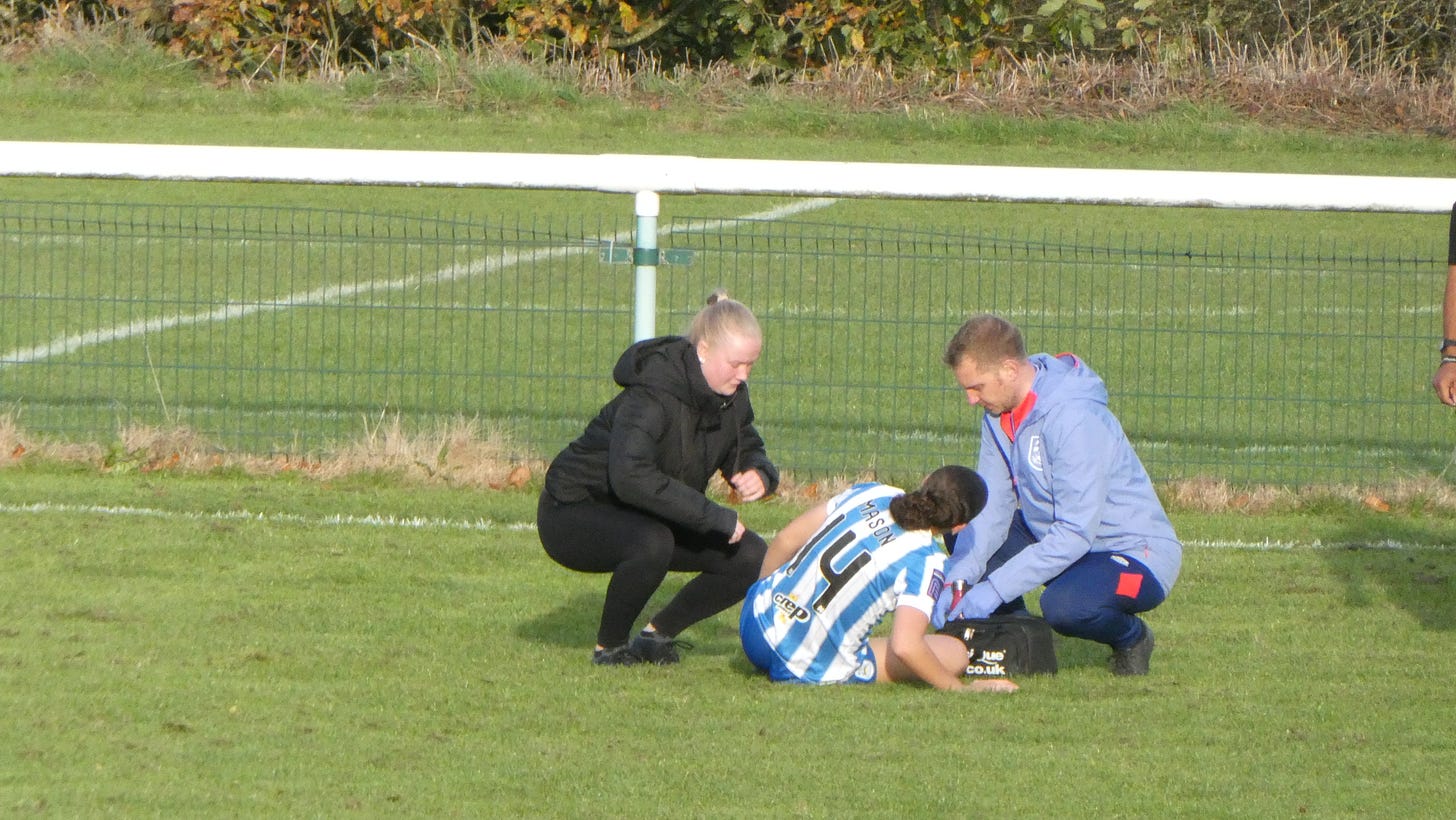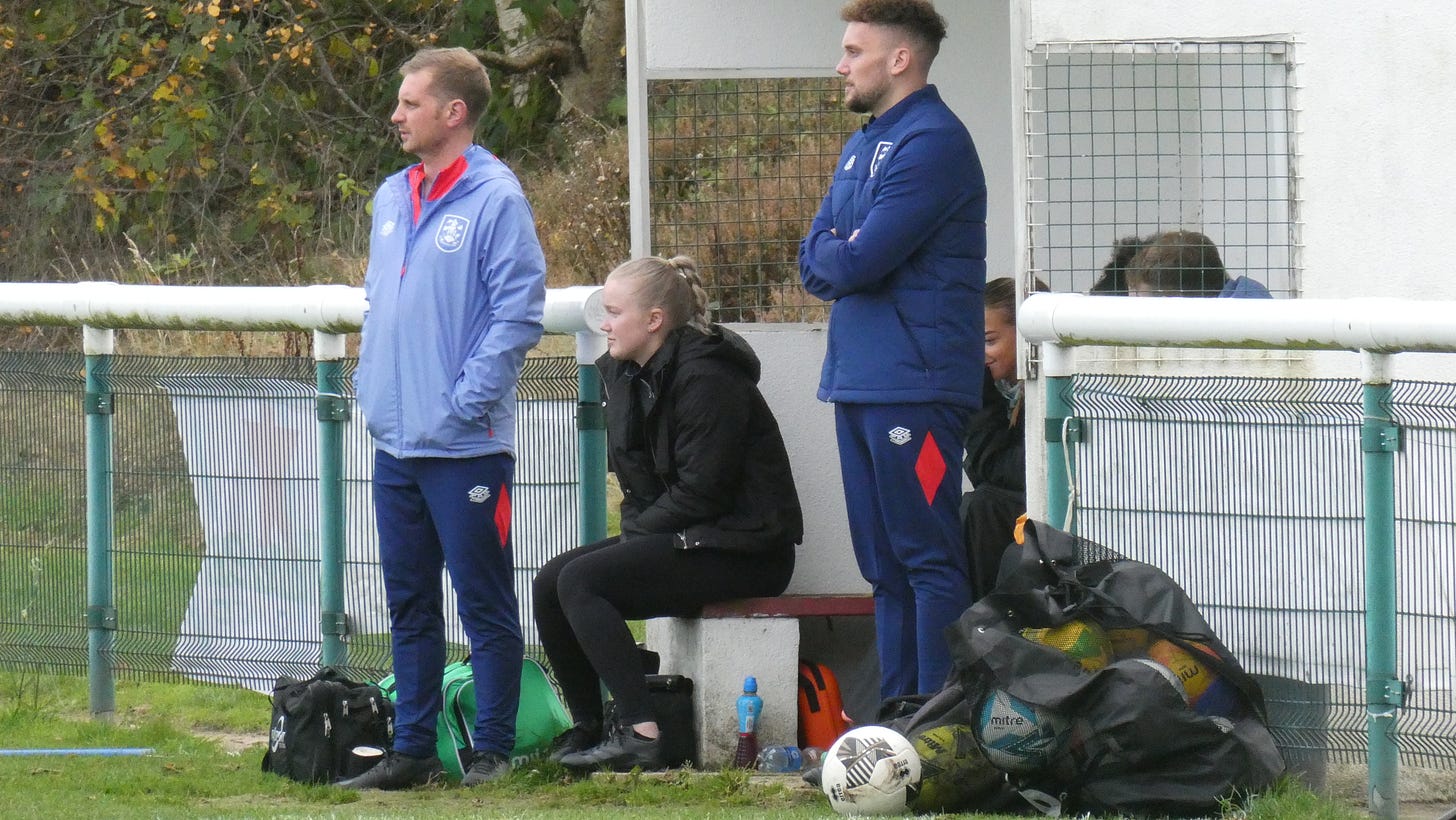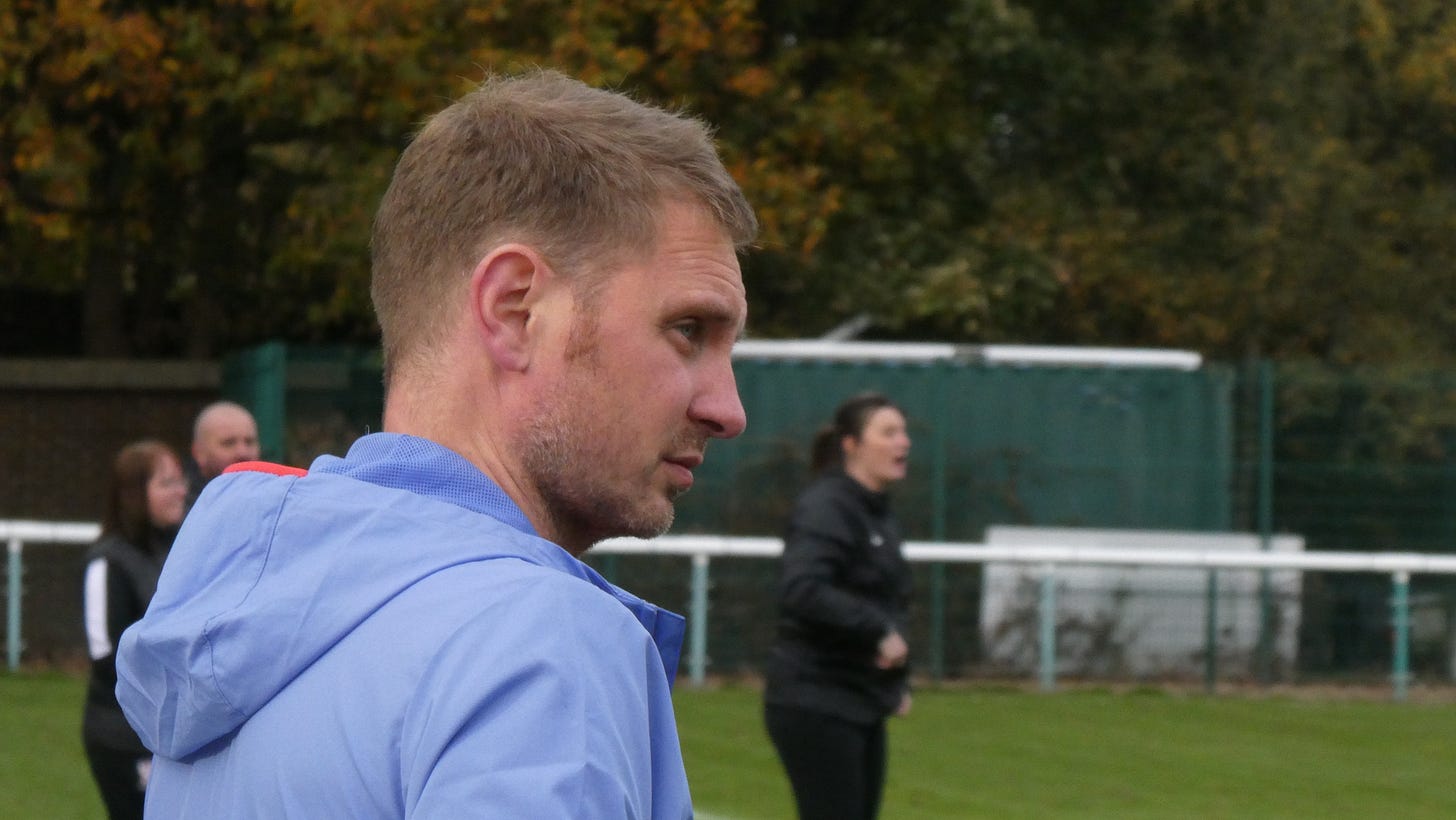Huddersfield Town Women's unorthodox backroom role that just might catch on
Simon Gleich has an unorthodox position in football that he feels could catch on across both the men's and women's games
There’s an old-fashioned view of medical staff in football that still pervades: physios dashing onto the field bottles of magic spray and the all-important, seemingly all-healing sponge. However, not many people are aware of the other roles that exist within medical teams.
Simon Gleich is the lead member of Huddersfield Town Women’s medical team and as a trained musculoskeletal podiatrist with over 20 years of experience, he brings different skills to the treatment table.
We know what you’re thinking: what exactly is a musculoskeletal podiatrist?
Gleich explained: “Mainly with podiatry you are dealing with people who have chronic pain. It takes a long time to process through the NHS at the moment, and so normally people have been in pain for three or four months before they come to see me in my NHS work.
“The obvious difference within a sporting scenario is that it is obviously very acute. I must make an immediate assessment on the pain, what the problem is and what injury has been sustained.
“When I am pitch side on the day it is first aid, everything from cuts and blood, head injuries - which we have had a couple of unfortunately this season - to turning their ankle, foot pain. All the stuff I see a lot of in both sides of my work.”
Gleich has worked full-time for the NHS in Barnsley for 18 years, but has always been interested into how how skill set could fit into sport, arguing that while it is a niche specialism, it can offer any number of additional benefits.
Around 17 months ago, Gleich approached chairman David Mallin and offered his services to Town Women.
Gleich said: “From that conversation, it took around a couple of months with some initial positive chat of what I might be able to do. Like everybody else, David had a limited understanding of the scope of what I could do as a musculoskeletal specialist podiatrist, because it is one of those unknown jobs. A lot of people know physiotherapy a lot better, and we are aligned but we are subtly different, there is a lot of overlap, and we work together very closely but they are different.
“So from that, it was a case of when there was a player who had an injury that I thought I could help out with, it went from a theoretical idea of something I could get involved with to one that was very practical.
“I would start working on the rehab for that player, and very quickly it was a case that this would work best if I actually can get down to training because that is where the players are and they have available time.”
First contact with the squad was at training in November 2023, before he joined the match day first aid team in January this year. At that time Gleich was supporting the club physio, who has since completed university and moved away. This meant that Gleich has now assumed the responsibility of being Town Women’s sole pitch side first aider.
Unlike professional football clubs, Town Women aren’t training full-time with the additional benefit on-site rehab and recovery facilities and a club chef. That presents difficulties for the medical team, as they aren’t able to necessarily track the progress of the players physical condition from day to day.
Gleich said: “The challenges come down to engagement. There is a lot more onus and requirement on the players being self-motivated, so if I give them an exercise program, they have to do it in their own time, off their own back, and around their own work or studies.
“Then you get to see them once or twice a week. I tend to get to one training session a week. I would love to get to both, but practically, with a family, that isn’t always possible.
“So I give them a plan, I can work through it and review how well they are doing, but then they have to go out and do it. It comes down to whether they have the time, motivation and resources to do that because if it is something that needs access to a gym, we don’t all have access to a gym all of the time.
“The women’s game is growing rapidly but it needs the finance to enable this element of the sport to make the next step. The skills are there; it is just being able to enable people to have that time and focus to do it.”
This is something that we are sure will become more present at the upper end of women’s football in the future — but questions remain as to whether and when that money filters further down the pyramid.
Gleich now hopes to make sport into a larger part of his business, saying: “It is now something that I would consider. There aren’t many musculoskeletal podiatrists who are full time members of staff at clubs, and that is what I would like to do. I would rather work with a group of medics and players who work closely together.
“I think because we are quite niche in what we do, you would be looking for a club with a men’s and women’s academy and first teams to sustain having a podiatrist as part of the club’s medical team as a full-time member of staff.
“Podiatrists now tend to be freelance, and clubs will employ them periodically, when necessary, but I do think that is partly due to the lack of understanding of the scope that we have to offer.
“When I have chatted to club’s professional physiotherapists, speaking to someone at Sheffield United not so long ago, once I had explained what it was that I could do and what I was doing, they said having someone like that as a member of a medical team would probably be very beneficial. But it’s not something that is considered, because it has never really been thought about.
“I would like to see a different model where people like me are taken on by clubs as permanent staff members, but that might be something that happens a long time in the future or it might be something that is never realised.”
Finally, Gleich spoke on how the environment of Town Women is a positive one. Last season was far from a joyride, but recent results show that things on the pitch are on an upwards trajectory.
Gleich said: “I am really enjoying my time at the club. I was welcomed by all the coaches very readily, as we are still in the financial sense a club with quite a small backing. A lot of the operation last year, we were operating on 10% of the budget of some of the other teams [in the third tier].
“The players were always very positive and friendly, but they didn’t really know what I could offer. As time goes on, I have built their trust and I now feel like a full member of the playing and coaching squad. I think we have mutual trust.
“The environment is good, last season was difficult, this year there was a positive atmosphere throughout pre season and going into the season.
“It is a golden period for women’s football at the moment, but the interest has grown quicker than the money has come along and I think that will be the next step. When the money starts coming in, it is not entirely reliant on clubs deciding to fund it and hoping that additional sponsorship follows.”
It is clear that the era of the bottle of the almighty sponge is over. Football club’s take the health of their players as seriously as the results on the pitch.
Musculoskeletal podiatrists could now become more present across the game as time moves forward and science improves in football…as long as clubs are aware it’s an option.






